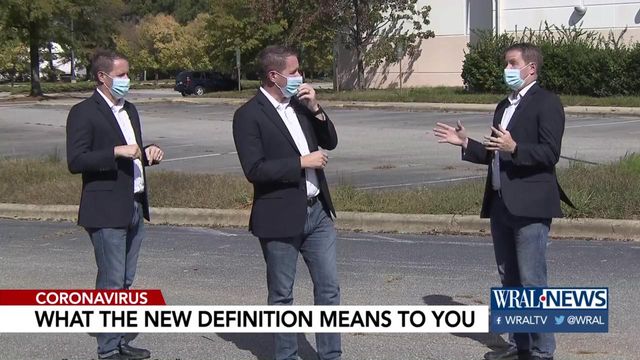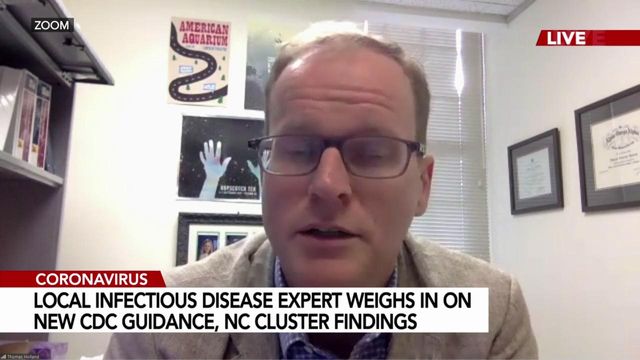CDC: Even short exposures to someone with coronavirus can add up to illness
U.S. health officials Wednesday redefined what counts as close contact with someone with COVID-19 to include briefer but repeated encounters.
Posted — UpdatedFor months, the Centers for Disease Control and Prevention said close contact meant spending a solid 15 minutes within 6 feet of someone who tested positive for coronavirus. On Wednesday, the CDC changed it to a total of 15 minutes or more — so shorter but repeated contacts that add up to 15 minutes over a 24-hour period now count.
“Any duration of contact can lead to infection, and this is an acknowledgement of that," said Thomas Holland, Duke infectious disease specialist.
“There have been cases reported of people that had intermittent exposures and none of them were very long, but they still managed to get infected."
The CDC advises anyone who has been in close contact with a COVID-19 patient to quarantine for two weeks.
“There really is not a safe amount of time to be in close proximity to someone who is infected with COVID," Holland said. “It really emphasizes that you need to do the other things that you can" – maintaining distance, washing hands frequently and wearing a mask.
The change may prompt health departments to do contact tracing in cases where an exposure might previously have been considered too brief, said Dr. William Schaffner, a Vanderbilt University infectious diseases expert.
“It will definitely expand the number of people considered a close contact and therefore are included in contact tracing," Holland said.
It also serves notice that the coronavirus can spread more easily than many people realize, he added.
The definition change was triggered by a report on that case of a 20-year-old Vermont correctional officer, who was diagnosed with a coronavirus infection in August. The guard, who wore a mask and goggles, had multiple brief encounters with six transferred prisoners before test results showed they were positive. At times, the prisoners wore masks, but there were encounters in cell doorways or in a recreational room where prisoners did not have them on, the report said.
An investigation that reviewed video footage concluded the guard's brief interactions totaled 17 minutes during an 8-hour shift.
The report didn't identify the prison but Vermont officials have said that in late July, six inmates tested positive when they arrived at the Marble Valley Correctional Facility in Rutland.
In a statement, CDC officials said the case highlights again the importance of wearing masks to prevent transmission, and that the agency's guidance can change as new information comes in.
“As we get more data and understand this COVID we’re going to continue to incorporate that in our recommendations," CDC Director Robert Redfield said at a press conference in Atlanta.
Holland added,"We are learning more and more about it, and, unfortunately sometimes, we are learning it is easier to transmit than we understood previously.”
The CDC also says close contact can include hugging and kissing, sharing eating or drinking utensils with someone infected, and providing home care to someone who is sick. Someone sneezing or coughing on you also counts.
The risk of spread is considered to be lower outdoors, but the CDC guidance update “makes scientific sense," said Dr. Michael Saag, an infectious disease researcher at the University of Alabama at Birmingham.
Related Topics
• Credits
Copyright 2024 by WRAL.com and the Associated Press. All rights reserved. This material may not be published, broadcast, rewritten or redistributed.






